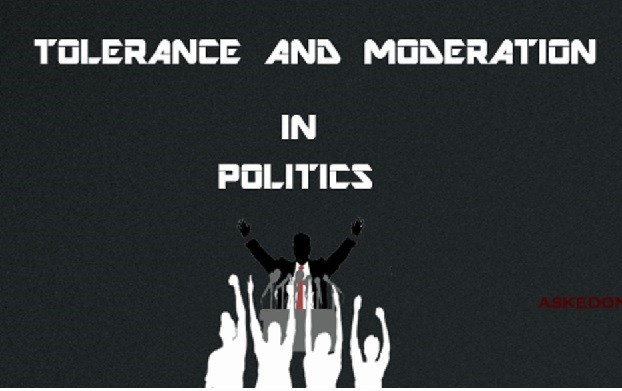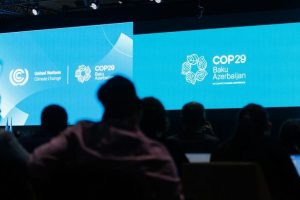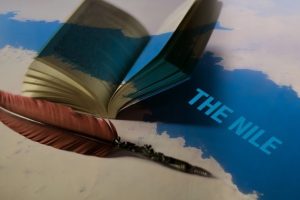
For a long, Ethiopia has been marred by polarized political views making the road to moderate political practice bumpy. The idea of a gray line in the country’s politics has been a tall order pitting not only politicians but also the fan bases into confrontations resulting in naming labeling and even hatred.
Over the years, the ill-conceived thought of ‘those who are not with me are against me’ has been dominant in the country’s political landscape. This tendency in turn sparked enmity and produced hardliner politicians and dashed the hope of political tolerance.
Moreover, the country’s politics has been manipulated by one-sided political leaders who have no room for ideological differences over the past many years. But this longer stain has far-reaching implications. Not only in politics but also in our daily lives an individual who begs to differ on certain aspects of thoughts is unfairly labeled as a foe.
Since the 2018 reform, there has been a departure from the long-term status quo with the ruling party appointing members of opposition parties to the council of ministers.
In its latest social media post, the ruling Prosperity party indicated that the chance of entertaining or listening to others’ different ideologies was very rare.
The country has been going through socioeconomic and political reform over the past three years. It also faced several challenges from international pressures and wars to economic inflation.
Meanwhile, Ethiopia has also won several victories from the effective execution of its mega projects to the recent cessation of hostilities (CoH) agreement signed between the federal government of Ethiopia and TPLF.
Accordingly, the parties agreed on different issues mainly for lasting peace in the country. Recently Minister of Government Communication Service, Legese Tulu said that, the Ethiopian Government is totally fulfilling its responsibilities, and conformed to the Pretoria Peace Agreement.
The Minister said that, positive and lasting peace originates from inner desire. If the inner desire is to look inward and heal our wounds, to ensure equal benefits and unity of the people, if it stems from these goals, looks at the bigger purpose, and hope for the future, then lasting peace can be achieved, Legese stated.
For this reason, “we tolerate issues that seem to be minor problems for the time being, but are not significant in terms of long-term benefits, for the sake of our main goal. Externalizing things and echoing the problems arising from doubt and fear, for the time being, can never be a part of the solution alone. For this reason, it is important to take concrete steps, he said.
He also stated that, the government is also facilitating humanitarian aid and medical supplies from partners to the Tigray region through all corridors. The Minister said that, the groups of professionals in each sector are working together to restore basic services, confirming that some of the public institutions have started providing services in some areas as well.
Legese further added that, it is necessary to directly confront the forces that create obstacles so that the principles of the peace agreement turn into concrete actions. He emphasized that optimism and committed action from every Ethiopian is crucial to establish lasting peace.
Before the reform which is being led by Prime Minister Abiy Ahmed (Ph.D.), there was an inclination of submitting to an individual’s interest instead of having ideological combat between parties themselves.
According to the ruling party, it is mandatory to build a generation that believes in the values of ideological harmony. Giving chance for people’s ideas to freely flow would enable the development of multi ideological culture. It was also stressed that a system that allows people’s voices to be heard would lay the cornerstone for building a society that strives for change.
According to the party, polarization is a worthless way for losers and it is no good for nobody. Polarization has been causing damage to the country and it is still affecting people’s lives from different corners of the nation.
For instance, the repeated attacks on innocent civilians and property damages done by the armed groups called Shene are nothing but the result of polarized ideology. It was reported by local media recently that the armed groups have captured, robbed, and trucks that were sent to deliver emergency aid to the Guji zone of Oromia region and Kamashi of Benishangul Gumuz regional states.
National Disaster Risk Management Commission (NDRMC) Commissioner Ambassador Shiferaw Teklemariam on his part said that, delivering emergency aid to the people in need has become difficult because of the security threat caused by the armed forces.
The armed groups causing security threats here and there seem not to understand the value of peace for a developing country like Ethiopia. In this case, it is strongly noted by the Prosperity Party that going forward with brotherly energy and synergy is the best option. It was also stressed that many of the country’s problems emerge internally among its people themselves. Thus understanding this fact and looking for a mutual solution is mandatory according to the party.
How one developing country which is still suffering from ethnic-based political trends and polarized ideologies could come up with mutual solutions is the biggest question here.
It is obvious that practicing freedom of speech has been a long-time dream for the citizens of Ethiopia during the past regimes. There was even a time when representatives of the people themselves couldn’t speak about the real problems of their own nations in the parliament except by accepting and raising their hands for whatever comes from the ruling party.
Currently, such practices seem to change as it was witnessed representatives of different parties gained seats in the parliament and some of them have started to influence the parliament so their say should be heard.
This is one step towards embracing ideological differences and respecting people’s ideologies. This trend is expected to give people who have lost their ways by polarized influences a chance to consider ideological challenges as the order of the day instead of causing security threats to innocent civilians.
The idea is the ruling gear that leads to achieving peace, multifaceted development, and national prosperity.
In this case, it is vital for major actors and parties playing role in Ethiopia’s politics to embrace ideological harmony and lead the new generation towards a constructive path of respecting other people’s ideas and speaking their own without fear.
BY HENOK TIBEBU
The Ethiopian Herald 24 November 2022





